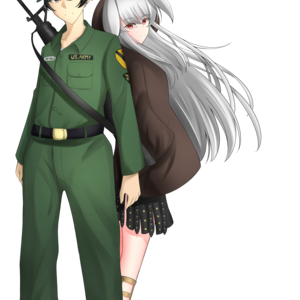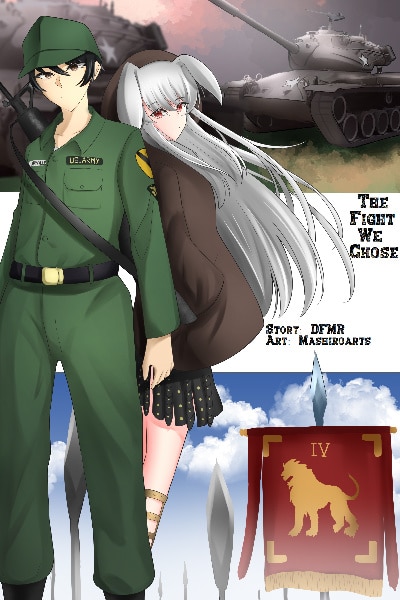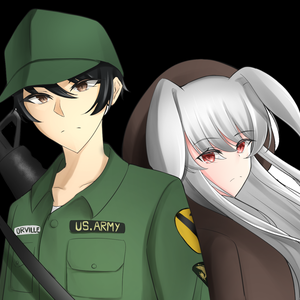Chapter 9
November 24th, 1963
Republic of Vietnam
He slapped a buzzing mosquito off his neck, scowling as the warm, sticky feeling on his hand let him know the now-dead insect had very much gotten what it wanted before dying. He silently prayed his immune system and the many vaccines given by the Army worked as advertised. He wiped his hand on his pants, adding another stain to the olive green before shifting his attention back to the January 25 issue of Life Magazine.
In Color: The Vicious Fighting in Vietnam...
Passing the pages with little thought, he heard the unmistakable sound of a slap as his bunkmate also eliminated another one of the buzzing pests.
Andrew Reagan shut his eyes tightly then, placing the magazine next to the newspapers squeezed under his pillow. It was an odd sensation. Knowing that, for all intents and purposes, a world-changing event had happened back home. The mind conjuring images of scientists in lab coats running around and arguing about the exact nature of the thing that had opened in Dallas, Texas. The politics behind it, the possible policy changes across the globe, the reaction to the attacks, all of it occupying so many people’s minds.
But it didn’t really change things for them.
At least, not yet.
Not here.
The Green Berets were still in South Vietnam, South Vietnam’s government was still imploding, the north was still eying the south for annexation or reunification depending on who you asked, fears of communism conquering southeast Asia were still rampant, concerns over abuse by pro-capitalist regimes were still mounting, and the mosquitoes were still trying to steal his blood. He slapped another one, this one right on his forehead, then wiped his hand on his pants again, staining them a little more.
But he didn’t complain.
Not his job to complain.
He eyed the image on the magazine’s cover, the colored picture of prisoners on a small boat, ropes around their neck, skinny.
Ripping him from his thoughts, the cabin’s door suddenly swung open and his head turned to it alongside the rest of his platoon.
The Legend walked in without a word.
An ever-calm expression on his clean-shaven face betrayed his true age and experience. M2 Carbine slung around his back, hands balled into fists, an uncertainty in his silence. The Berets all looked at him in an equally uncertain silence. As though a feeling of dread had fallen over them all. He made eye contact with each of them, briefly eyeing each one at a time, perhaps to gauge if he had their attention or to hold off on whatever news he had to give a little longer.
Finally, The Legend said, “We’re being called back.”
No one spoke.
“Word is, guys like us are needed stateside more than here.”
No one commented.
The Legend rubbed the back of his head, maybe waving away one of the buzzing pests, before adding “I can’t guarantee the circumstances awaiting us are exactly better. Pack your things. Be ready to leave by 1300.”
“Yes, captain!” came the collective reply, Andrew immediately hopping off the bed.
He began picking up his rucksack immediately, placing it on his bed, opening it. Then he paused; an odd feeling of disbelief suddenly began washing over him then. They hadn’t asked questions. Not their job. Mission first, after all, but the sudden acceptance that they were being transferred back so quickly was rather jarring.
But again, mission first. Even if right now it involved them going home, had their objectives truly changed? Their base objectives?
De Oppresso Liber...
He overheard the ARVN troops in the base mumbling amongst each other outside, the wooden walls and screen windows not doing the best job of blocking sound.
Andrew wasn’t an interpreter, but he could tell by their tone there was frustration, soon realizing news of the US shifting its focus had likely reached the other soldiers. Perhaps not so much “realized”, as in the new implications of their current reality were suddenly in focus within his mind and he put two and two together.
We’re abandoning them.
His bunkmate walked over, carrying his own rucksack in silence. Really, everyone continued packing their things in that same quietude which was only occasionally interrupted by frustrated arguments outside. Some angry words he couldn’t entirely understand. Other voices came in calmer tones, perhaps accepting or resigned to their future. Others, almost indifferent.
It was all mixed with the usual hubbub of the base.
But Andrew could only truly focus on packing. Thoughts of back home and what exactly was happening there filling the lull in his concentration as he continued packing. Questions, questions, questions, all to be answered on their own time, all with their own degree of importance.
But it mattered little now.
“Think they’re sending us through that... thing?”
He glanced at his bunkmate. The scruffy young man zipped up his bags while keeping ahold of his copy of The Guns of August under his arm.
Andrew only shrugged.
“Well, if you ask me, Texas beats this hellhole. It’s not even a competition.” he punctuated the sentence by slapping another mosquito on his neck.
Andrew huffed, allowing a slight smile, leaving the conversation at that.
Passing a hand through his unkempt blonde hair, he zipped up his rucksack and slung it over his shoulder before picking up his M2 Carbine on the way out. Frowning as he noticed the wooden stock had swollen ever so slightly, he finally spoke.
“Will probably do the guns some good at least.”
“True enough. True enough.”
They exited their barracks, walking out into the South Vietnamese base. The green fields and somehow greener mountains in the distance likely hid too many eyes for the comfort of whoever knew what lay up there. He gripped his M2 a little tighter as he followed the Berets down the dirt paths, trying to ignore the far more tangible gazes of the ARVN troops sitting around. One unfortunately locked eyes with him as he walked.
The kid couldn’t have been older than nineteen, the mustache too undeveloped to have belonged to a mature man, the Boonie hat, and far too large American M1 Garand by his side only made him appear even younger. There was an indifference in his eyes that bothered him.
So, like any good soldier, he averted his gaze.
To his left, he saw their guys weren’t the only ones exiting their cabins with all their gear.
No one spoke as they entered their transports one at a time.
Their captain The Legend was waiting as they got on.
He didn’t say anything.
Andrew Reagan tried not to think about those they were living behind as the H-34s took off into the sky.
Moscow, USSR
He placed the paper down onto the desk before grabbing another, the record player continuing to broadcast Glinka’s somber piano through the dimly-lit office as he sat in silent contemplation. His expression was that of an unmoving rock as he read the report which could only be described as “horrifying”.
The General Secretary of the Soviet Union had seen quite a lot in the long and painful years that mired his nation’s relatively short history, but the information coming out from across the ocean had various layers of terror that he was uncertain could be matched.
When the Civil War between the reds and the whites erupted, they knew the threats and their capabilities. The unknowns would have been foreign interventions that never truly manifested the way they had feared. When the National Socialists of Germany betrayed them and invaded their homeland, the unmatched resistance, and the support from overseas made certain that they knew what they were fighting and how they could win.
But this?
The Americans had been attacked and American civilians had been killed.
The Americans had pushed back the attackers.
This, by any reasonable measure, would be enough of a casus belli to strike back against the aggressor.
No one could object to that.
No one in their right mind, anyway.
Had it been China’s government or even Cuba’s government acting so brashly he probably couldn’t have done anything other than remain silent and offer limited support as the Americans annihilated the aggressor.
But it wasn’t Cubans or Chinese.
Such was the first terrifying layer to the multi-layered horror.
The attackers were woefully underdeveloped men from, as far as they could tell, another world. They hadn’t come from space, they hadn’t come with superior weapons or technology. They had simply come from some door to another place, attacked a civilian center, and been routed.
Such was the second layer of multi-layered horror.
If that was the best this other world could muster, swords and bows, then even Japan’s painfully minuscule Ground Self Defense Force could conquer them and their entire world, its people, its resources, its entire way of life, all in short order.
But it was sitting on America’s soil.
Such was the third layer to the multi-layered horror.
And then there were his options.
The United States now had undisputed access to another world, a world ripe for conquest and exploitation as far as anyone knew. A new world only accessible through a large portal in one of America’s cities. A portal that, as far as they could tell, couldn’t just be destroyed.
And that was the fourth and final terrifying aspect of the new situation.
It changed things.
If it had simply opened there and no one had died or been attacked, then he, anyone really, could have voiced objections, demanded America hand access to a neutral body, allow nations from both sides of the ongoing Cold War to jointly explore this new world together. Perhaps invoked rosy language about easing tensions, avoiding the mistakes of the past, jointly pushing mankind forward in some way. A great distraction from other problems within the USSR. His mind went back to the Polish and Hungarian... problems.
But it was for naught.
America had its reason for another war, and until it was solved, all the Union of Soviet Socialist Republics could really do was react.
As Glinka’s piano wound down with its slow closing notes, the General Secretary of the Soviet Union quietly placed the report down, only one thought on his mind for the brief interlude between the final notes.
What will you do, mister president?











Comments (0)
See all